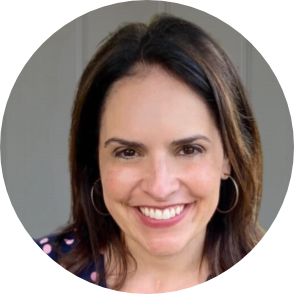
Finding water in a news desert: Tips from three experts
Ellie Blanchard
Americans in 203 counties don’t have a local news outlet, recent research shows. During election season, a lack of local news presents a challenge to voters looking for vital information about ballot initiatives and candidates running for office.
As information becomes harder to find, especially in rural areas, the News Literacy Project convened three experts to share tips for finding reliable news before heading to the polls. For more ways to find credible election news, check out our elections resource hub.
💦 Sweat the details
To avoid being fooled by bad actors masquerading as local officials, learn to recognize legitimate election information that you find in your mailbox or online. Brianna Lennon, county clerk for Boone County, Missouri, advised looking for clues that a source is legitimate, like an official election mail insignia or a web address that ends in .gov.
 “In terms of finding out what’s on the ballot, the actual government website and the mail are the two biggest ways that people are going to find it.”
“In terms of finding out what’s on the ballot, the actual government website and the mail are the two biggest ways that people are going to find it.”
— Brianna Lennon
💡 Take responsibility
If your area lacks news coverage on local issues, turn to trusted community leaders to better understand candidate positions, suggested Benjy Hamm, director of the University of Kentucky’s Institute for Rural Journalism and Community Issues. “I call friends who deal with the court system… I talk to teachers about school board members,” he said. While this is a good starting point for getting information, be aware of biases and be sure to consult multiple sources.
 “There is a responsibility to vote, but there’s a greater responsibility to be an informed voter.”
“There is a responsibility to vote, but there’s a greater responsibility to be an informed voter.”
—Benjy Hamm
🤔 Think like a journalist
Without a formal voter guide from a local news outlet, you can operate like a journalist yourself to find important information. Alana Rocha, editor of the Rural News Network, encourages all voters to think critically when they see promotional flyers or texts. Seek news from a variety of sources and confirm claims by visiting candidates’ platforms directly.
 “In terms of finding out what’s on the ballot, the actual government website and the mail are the two biggest ways that people are going to find it.”
“In terms of finding out what’s on the ballot, the actual government website and the mail are the two biggest ways that people are going to find it.” “There is a responsibility to vote, but there’s a greater responsibility to be an informed voter.”
“There is a responsibility to vote, but there’s a greater responsibility to be an informed voter.” “Diversify your sources. Go to the person’s website to see what they have to say.”
“Diversify your sources. Go to the person’s website to see what they have to say.”